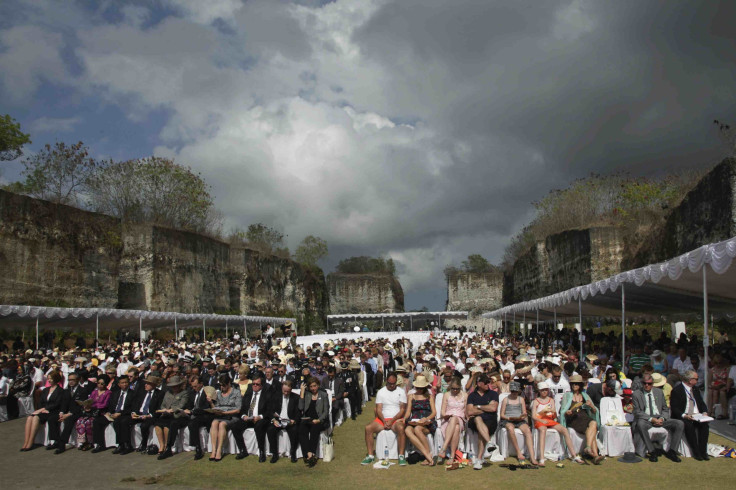Terrorist Group Behind Bali Bombing Weakened, But Others Arise

A terrorist attack that took place 10 years ago in a resort town on the Indonesian island of Bali claimed 202 lives.
A suicide bomber walked into a nightclub and detonated a device, killing many and sending more running out onto the streets, where a second suicide bomber killed even more people.
Among the 202 victims were 88 Australians, 38 Indonesians, 24 Britons, and seven Americans. Another 240 people were injured.
This Friday, many of the survivors and family members of the victims returned to the site of the bombings at Kuta Beach in Bali for the 10th anniversary of the deadly attack.
“We wish to pay respect to those who have died,” said Gusti Ngurah Tresna, the head of Kuta Beach Task Force I, according to the Indonesia-based Antara News. “From the Kuta Beach here, we will campaign for peace and harmony, as people from across the world are represented here."
Since the attack, Indonesia has bolstered its anti-terrorism security forces and claims to have brought to justice all those involved in plotting the attack.
Indonesian President Susilo Bambang Yudhoyono wrote about his country’s progress in combating terrorism in an op-ed article in the Sydney Morning Herald.
“A decade after the Bali bomb, we can say with some relief that justice has been done,” Yudhoyono wrote. “Members of the terrorist group that planned and committed the attack have been apprehended, tried, and convicted. Three have been executed, and other major conspirators … were killed during police raids.”
Yudhoyono added: “Some of those in jail have expressed remorse and regret, and renounced the extremist ideology behind it. Others have collaborated to provide intelligence that led to the arrest of a succession of terrorist cells. Since 2001, our commitment to combat terrorism has resulted in the capture and legal sentencing of hundreds of terrorists.”
The Islamist militant group Jemaah Islamiah, an offshoot of al Qaeda in Southeast Asia, which was blamed for the attack, has been severely weakened by the government crackdown, although it has still been able to carry out a string of smaller attacks over the years.
“The level of threat has diminished, but it remains persistent,” said Greg Barton, a political scientist who has studied global terrorism at Australia’s Monash University, according to the Christian Science Monitor.
Some analysts say smaller terrorist cells continue to branch off from larger groups such as Jemaah Islamiah, which makes them more difficult to track. They are also increasingly able to spread their ideology through the Internet and public forums.
“The radical groups are smart,” Bonar Tigor Naipospos, the vice chairman of the Setara Institute, which advocates for greater religious pluralism in Indonesia, was quoted as saying by the Monitor. “They’re trying to gain influence through speaking in forums, in meeting places, in mosques.”
Critics contend the Indonesian government needs to do more to crack down on radical forms of Islam, and that it has been reluctant to do so out of fear of appearing un-Islamic in a country which is predominantly Muslim.
“If religious freedom is given to the free market … tension and conflict are unavoidable,” said Din Syamsuddin, the head of Muhammadiyah, the second-largest Islamic group in Indonesia, the Monitor reported.
The challenge the government faces is balancing religious freedom with cracking down on terrorism in the effort to prevent any reoccurrence of what happened in Bali 10 years ago.
© Copyright IBTimes 2024. All rights reserved.





















